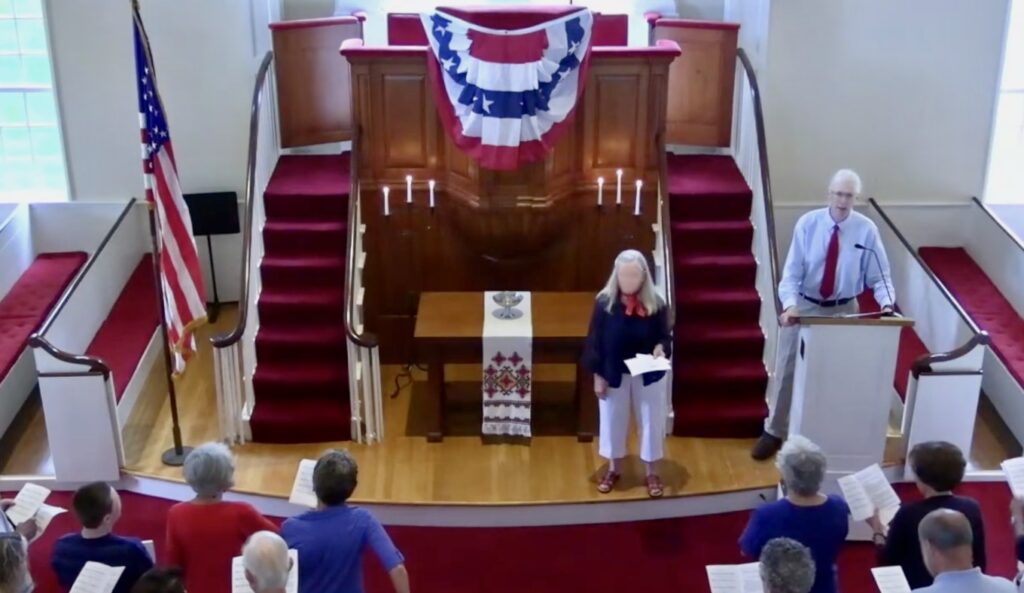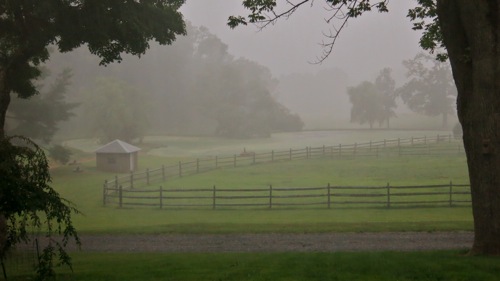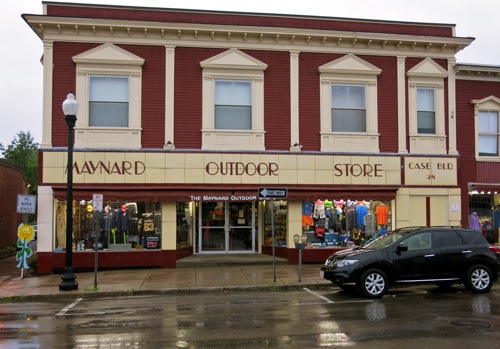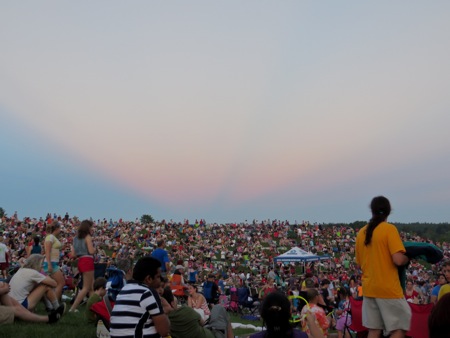For Independence Day, here’s the story of Robert Gould Shaw to inspire you. Excerpted and slightly modified from a sermon I delivered yesterday at the Palo Alto church.
Robert Gould Shaw was born in Boston in 1837 to a wealthy Unitarian family. His parents were Francis George Shaw and Sarah Sturgis; they had inherited money from Francis’s father, and Francis was involved in business and philanthropy. When Robert was five, the family moved to West Roxbury, near the famous Brook Farm community; and when Robert was in his teens, they moved to Staten Island, where the family helped found the Staten Island Unitarian church. The Shaws were abolitionists, and they may have been active in the Underground Railroad, helping escaping slaves to flee to the northern states.
Given the wealth and influence of the Shaw family, Robert surely could have avoided military service during the Civil War. But he chose to enlist. On April 19, 1861, Shaw joined the private Seventh New York Volunteer Militia. That short-lived unit disbanded after a month or so, and he joined the Second Massachusetts Volunteers (Infantry), and was commissioned as Second Lieutenant on May 28, 1861. He became First Lieutenant on July 8, 1861, and Captain on August 10, 1862. While with the Second Massachusetts, he took part in several battles, including the battle at Antietam. In late 1862, he was offered the chance to command a regiment made up entirely of free African Americans from the north. He became Colonel of Fifty-fourth Massachusetts Volunteer Infantry on April 17, 1863.
A small volume titled Memoirs of the War of ’61, published in 1920 by George H. Ellis (who was the printer for Unitarian tracts and books), tells the story of Shaw’s military service through excerpts from his lettersBelow are the excerpts relating to the 54th Regiment, which show his courage, and his growing realization that the men under his command were indeed his equals; for even though he was an abolitionist, like most white people of his day, he began by thinking African Americans his inferiors:
[Upon accepting command of the 54th Regiment, February 5th, 1862. Shaw wrote:] “There is great prejudice against it — at any rate I shan’t be frightened out of it by unpopularity.” March 25: “The intelligence of the men is a great surprise to me.” March 30: “The mustering officer who was here to-day is a Virginian, and he always thought it was a great joke to make soldiers of ‘n——s’ [African Americans], but he tells me now that he has never mustered in so fine a set of men, though about 20,000 have passed through his hands since September. The skeptics need only to come out here to be converted.” Morris Island, July 18: “We are in General Strong’s brigade. We came up here last night in a very heavy rain. Fort Wagner is being heavily bombarded. We are not far from it. We hear nothing but praise for the Fifty-fourth on all hands.”
Shaw was offered the post of greatest danger and greatest honor in the assault on Fort Wagner, and accepted immediately. Here is a contemporary account of what happened, written from South Carolina on July 22 by an unidentified person attached to General Strong:
The troops looked worn and weary; had been without tents during the pelting rains of the two previous nights. When they came within six hundred yards of Fort Wagner they formed in line of battle, the Colonel heading the first and the Major the second battalion. With the Sixth Connecticut and Ninth Maine and others they remained half an hour. Then the order for ‘charge’ was given. The regiment marched at quick, then at double-quick time. When about one hundred yards from the Fort the rebel musketry opened with such terrible fire that for an instant the first battalion hesitated; but only for an instant, for Colonel Shaw, springing to the front and waving his sword, shouted, ‘Forward, Fifty-fourth!’ and with another cheer and shout they rushed through the ditch and gained the parapet on the right. Colonel Shaw was one of the first to scale the walls. He stood erect to urge forward his men, and while shouting for them to press on was shot dead and fell into the fort.
Thinking to humiliate Shaw and his family, the Confederate Army, shocked that a white man would serve with African Americans, buried Shaw in a common grave with his soldiers. But his parents were pleased by this, and wrote:
We can imagine no holier place than that in which he lies, among his brave and devoted followers, nor wish for him better company — what a body-guard he has!
The story of Robert Gould Shaw is a classic story of patriotism. He gave his life in service of his country; more to the point, he gave his life while serving the highest ideals of his country, the ideals of freedom and equality for all persons. And in this case, the ideals of his country, and the ideals of his Unitarian faith, were clearly aligned. It is a classic story of patriotism, yet even so, Shaw’s patriotism questioned a dominant notion of his day: that African Americans could not serve with distinction in the military. So you see, this is a story of how a religious liberal pushed the boundaries of patriotism.
Notes:
Quote from Shaw’s parents from Seeking the One Great Remedy: Francis George Shaw and Nineteenth-century Reform, by Lorien Foote (2003: Ohio University Press). Other quotes by and information about Robert Gould Shaw from Memoirs of the War of ’61 (1920: George Ellis); the online biography of Shaw at the UU Historical Society Web site; and other online and printed sources.




